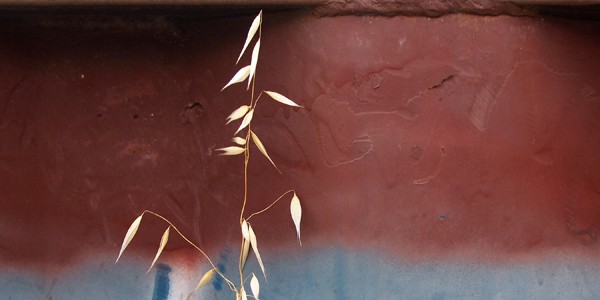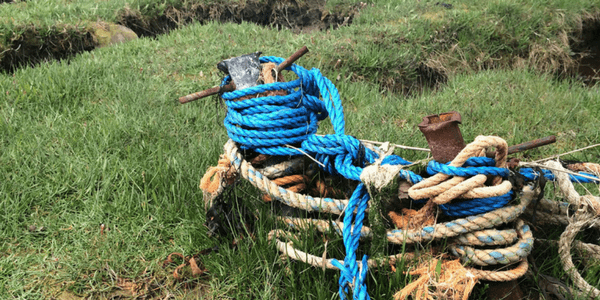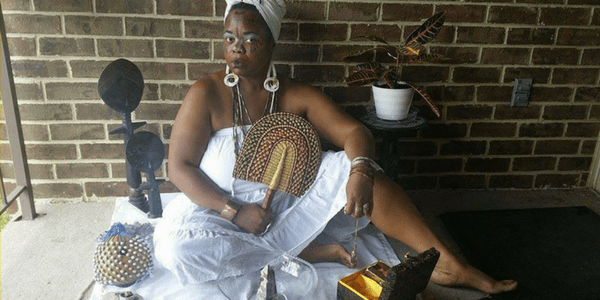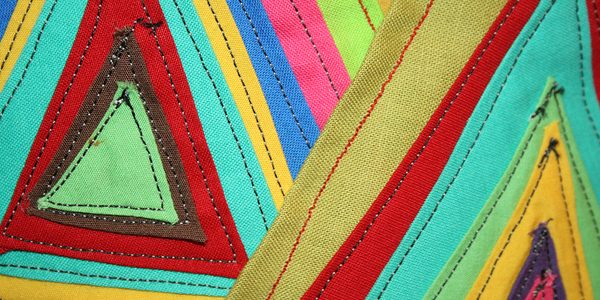 The conversations surrounding accessibility, diversity, inclusivity, and representation have come to the forefront of many Pagan and occult circles. From rituals, books, to articles, workshops, and protests, occultists are changing the way we look at public and private practice. I want to bring that dedication fully into my daily life as well as my magick.
The conversations surrounding accessibility, diversity, inclusivity, and representation have come to the forefront of many Pagan and occult circles. From rituals, books, to articles, workshops, and protests, occultists are changing the way we look at public and private practice. I want to bring that dedication fully into my daily life as well as my magick.
As a Kemetic, I am obliged to know my words and deeds affect other people and therefore, Ma’at, the divine order of the world. Like many witches before me, I use mental prompts or chants to weave magick throughout my daily comings and goings. The Witch’s Pyramid, also known as the the Powers of the Sphinx or Magician, is familiar to many witches and occultist as a guide for their Craft. I find it a great scaffold on which to build a mental practice or checklist that fosters respect and inclusivity. As a witch with privileges (European ancestry, cis and with a B.A.), I have a responsibility to check in on my language, approach and other actions. And as a lesbian, female, witch living at the poverty line, I have a call to use the privileges I do have to speak out against bigotry, in its casual and systemic forms.
Using the Witch’s Pyramid reminds me of my privileges, helping to create space for diverse representation and power. Despite the ironically high cost of attending Burning Man in Nevada, one of the 10 Principles that guide the event is Radical Inclusion — that any who wish to may participate, no exceptions.1 While the ideal of such representation in media, in magick, in governments, in all of life’s pockets is powerful, we’ve a long way to go to that point sadly. By harnessing our magick to support this kind of inclusivity we can affect change in our world. I’ve adapted the familiar four guides of the pyramid to help me be more inclusive in all my interactions:
A Witch’s Pyramid of Inclusivity
To know your own privileges
To be willing to listen to others in conversations about diversity
To dare to advocate advocate and protest for inclusionary systems
To be silent when marginalized voices speak
By recalling the refrain, ” to know, to will, to dare, to be silent” we can follow this well-worn path of magick to support systems and cultures that are radically inclusive. It is never enough to simply say these words, the actions must follow suit as well, turning intention into integrity. Let’s explore these in detail.
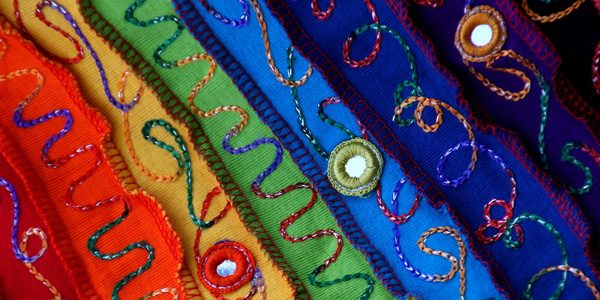
Know your own privileges
On your own, identify and process what natural advantages you have in society based on your gender, race, economics, education, religion, or geography, more physical and mental abilities.2 How does your being in a public space affect you and how does it affect others? When you find the differences, how can you encourage equity in this scenario and future ones? This is a process that never ends, and must be reexamined many times.
Be willing to listen to others in conversations about diversity
This does not mean “share your views,” rather, that you actively listen to marginalized people when they speak their concerns, needs and experiences- because you will learn something. This is not the time to offer your opinion, but to support the information being shared with you. Accept what other humans have experienced whether you like it or not, whether you understand it or not. Without honest listening it is impossible for any privileged person to respect the communities the status quo disengages and devalues.
Dare to advocate and protest for inclusive systems
This is, unsurprisingly, the most active step to take in this list. If, as a privileged person, you are in a position of power, asked to make recommendations, or otherwise influence art, politics, ritual, a workplace, academia, etc, you can use this power to hire and support diverse peoples. This can also mean calling out bigoted behaviour when it may be safe for you to do so, but not for the targeted group. Dr Joy DeGruy tells of how her sister-in-law, who passes as white, has publicly called out racist behaviour directed at Dr DeGruy.3 Remember to listen to marginalized people about their needs and experiences.
Be silent when marginalized voices speak
When marginalized groups are speaking about their needs, challenges, or experiences — whether in the sidelines or up front and centre — do not clog the sound waves. Let their voices be the loudest, and the clearest. They do not necessarily need a privileged voice on the subject. To have a voice at the table, to represent themselves is at the root of the struggle. As Chimamanda Ngozi Adichie points out, being able to tell one’s own story is a privilege many colonised and erased communities actively fight for.4 If you come from a privileged place already, your story likely has already been told. Let someone else speak.
Continue the work
This is the kind of magical work that is never completed, but necessary for any person choosing to join in making this global home, the only one we have, habitable for all people. By acknowledging our privileges and choosing to harness them, and most importantly listening to those suffer from our privileges, we can stand against status quo that permeates over and counter cultures.
Magick and the occult already stretches us as people, engages us to be as aware of our words and actions as we are of the moon and stars. As magicians, we know how our actions can affect our world. Consciously doing so is an even more powerful way to direct our magick towards healing our planet and all the people on it. By design, the Earth is radically inclusive. Using “to know, to will, to dare, to be silent” as a chant or reminder could go a long way in furthering inclusivity in our communities, and hopefully have some pretty large ripple effects on an area.
Choosing inclusivity is one way we can encourage the boundary dissolvement we often seek in magick making. Understanding another being’s circumstances and acknowledging their pain is a liminal act in and of itself — blurring the lines of who we are. If witches can feel the Earth’s, trees’, or the animals’ pain and suffering, why is it so hard to understand and sympathize with human beings even while they are vocalizing in human terms. We are working against the tide of colonist and essentialist systems of law, love and, identity. Witches, occultist, or magicians who work with nature and have privilege, must lend our energy to changing the world we interact with.
As we approach this festival season and interact with a myriad of humans, let’s use the Witch’s Pyramid in our hearts and practices to build safer spaces and more inclusive temples, better represented humanities, and do some work to sincerely address the inequalities, hardships, and dangers that are commonplace for so many lives.
Further Reading
- Bringing Race to the Table: Exploring Racism in the Pagan Community, Edited by Crystal Blanton, Taylor Ellwood, and Brandy Williams5
- Gender and Transgender in Modern Paganism, Edited by Sarah Thompson, Gina Pond, Phillip Tanner, Caylxa Omphalos, and Jacobo Polanshek
Image credits: Tiffany Mack and Phil Richards
- Burning Man, “The 10 Principles of Burning Man.” [↩]
- Peggy McIntosh, “White Privilege: Unpacking the Invisible Knapsack.” [↩]
- WorldTrustTV, “Cracking the Codes: Joy DeGruy, A Trip to the Grocery Store.” [↩]
- Chimamanda Ngozi Adichie, TEDTalk, “The danger of a single story.” [↩]
- See our review of Bringing Race to the Table. [↩]


